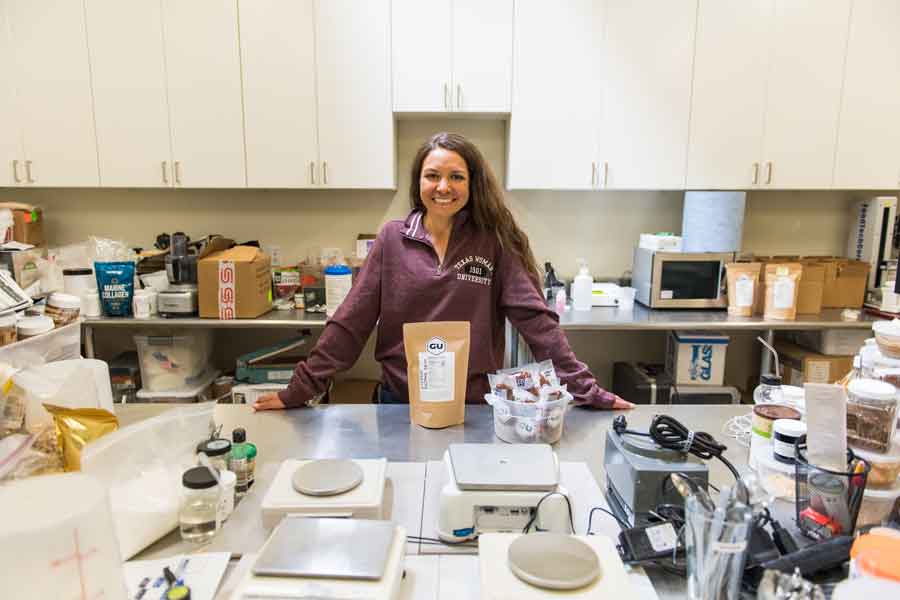To the Top of the World and Back

TWU alumna Roxanne Vogel has taken mountain climbing to new heights.
An experienced mountaineer who’s climbed the tallest mountains on nearly all the continents, Vogel set a unique goal for herself to become the first person to scale Mt. Everest – going up from sea level, to the top of the world and back down – in a record-making two weeks. By comparison, the average climber takes two months to climb the world’s tallest peak.
“If you took 20 empire state buildings and stacked them on top of each other, that would give you some idea of the height of this ginormous mountain,” Vogel explained to GU Energy Labs’ Pinnacle Podcast, where you can hear more of her story.
With her sights set on a “lightning ascent” of Everest, Vogel (’17, M.S. Exercise and Sports Nutrition), trained for three years by scaling other tall peaks; completing high-altitude, long-distance runs; and working and sleeping in oxygen-limiting quarters to simulate conditions on the mountain. She also maintained a meticulous diet and grueling exercise regimen.
If you took 20 empire state buildings and stacked them on top of each other, that would give you some idea of the height of this ginormous mountain.

“You could say that this is as much about science as it is personal fulfillment,” said Vogel, who now works as a nutrition and performance research manager at California-based GU Energy Labs, which created special nutrition and energy products specifically for her climb. “The research I did at TWU has fully informed what I’m doing now at work and in life. I’m taking my research, applying it in the real world and now taking those products up Mt. Everest.”
Despite the years of preparation, success was not certain.
The journey to the top took Vogel and her team – two Sherpas and veteran mountain climber and mentor, Lydia Bradey – to the more difficult north side of the mountain. The route had more severe weather – including higher winds and colder temperatures – as well as more technically difficulty climbs. Additionally, they had to wait until later day to begin their ascent. Still, the team made it.
“My initial thoughts when we arrived at the summit after nearly 10 hours of climbing that day were, ‘Are we on the right mountain? Where is everyone else?’” she said, adding that her next thought was: “OK, we are only halfway there, stay focused and get down safely.”
You could say that this is as much about science as it is personal fulfillment. The research I did at TWU has fully informed what I’m doing now at work and in life. I’m taking my research, applying it in the real world and now taking those products up Mt. Everest.
With Everest checked off her list, Vogel now has reached the summits of the tallest mountains on six continents. She plans to climb the highest peaks on a seventh continent, Antarctica, later in 2019. She hopes to contribute to the science of high-altitude physiology both with her climbing and doctoral research and to inspire others.
“The other thing would be to be a role model to other young women or minorities who haven’t spent much time outdoors or in the mountains,” said Vogel. “To show them that it can be a place we are welcome and can excel and just because it’s male-dominated right now that doesn’t mean we don’t have entry into it.”
The other thing would be to be a role model to other young women or minorities who haven’t spent much time outdoors or in the mountains. To show them that it can be a place we are welcome and can excel and just because it’s male-dominated right now that doesn’t mean we don’t have entry into it.
Media Contact
Page last updated 3:11 PM, March 17, 2023
/prod01/twu-cdn-pxl/media/images/iwl/Roxanne-Vogel-Everest-900px.jpg)
/prod01/twu-cdn-pxl/media/images/iwl/Roxanne-Vogel-Everest1-900px.jpg)